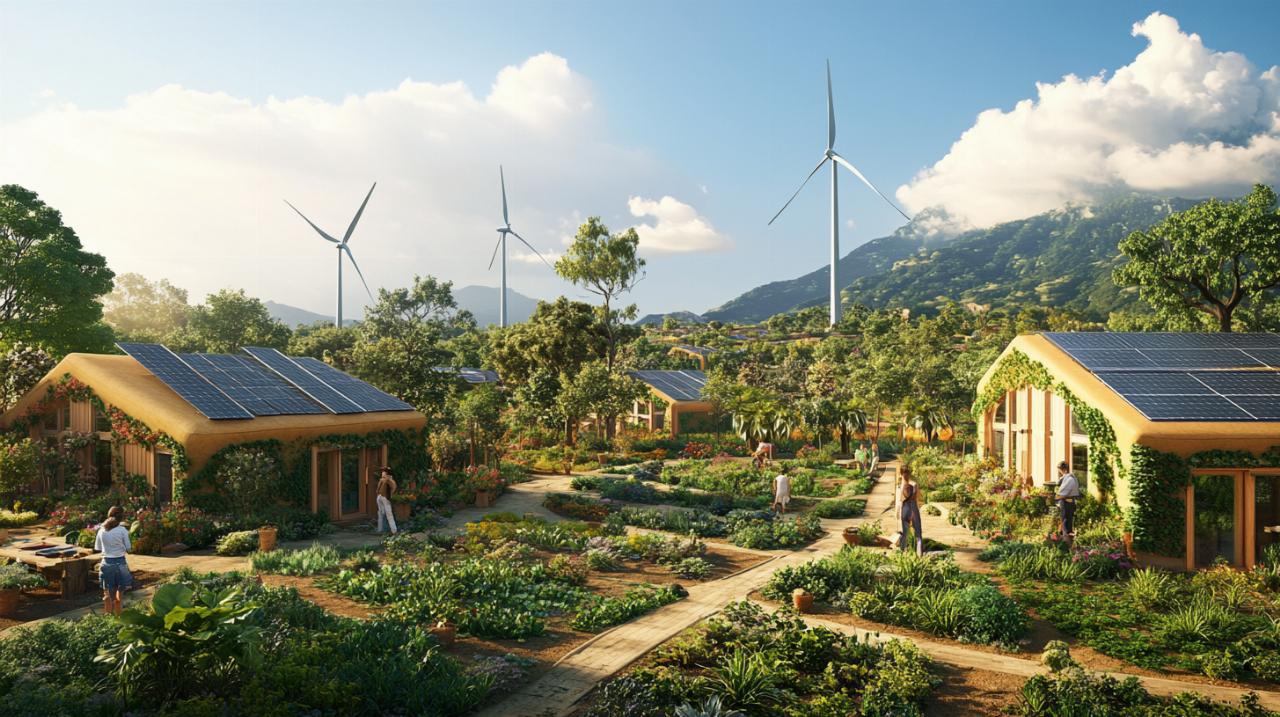Explore Sustainable Living Practices for a Greener Lifestyle

The choices we make each day shape the world around us, and increasingly, people are recognising the power they hold to foster a healthier planet. From the way we travel to the food we consume and the items we purchase, every decision carries an environmental footprint. Understanding how our habits contribute to climate change and carbon emissions is the first step towards meaningful change. By adopting a few thoughtful adjustments, we can collectively reduce greenhouse gas output, curb plastic pollution, and promote a circular economy that values resources over waste. The journey towards a greener lifestyle is not about perfection but progress, and it begins with everyday actions that ripple outwards into lasting impact.
Rethinking your daily commute and transport choices
Transport remains one of the most significant contributors to carbon emissions, with road vehicles accounting for the majority of those outputs. In the United Kingdom, road transport alone was responsible for a substantial share of total emissions in recent years, underscoring the urgent need to explore greener alternatives. The way we move from place to place offers a remarkable opportunity to reduce our environmental impact. Whether commuting to work, running errands, or embarking on leisure trips, the modes of transport we choose can either accelerate or mitigate the climate crisis. Shifting towards sustainable transport options such as public transport, cycling, and electric vehicles can dramatically lower our carbon footprint while also improving air quality and public health.
Embracing public transport and cycling infrastructure
Public transport systems represent one of the most efficient ways to move large numbers of people while minimising per-person emissions. Buses, trams, and trains not only reduce the number of individual vehicles on the road but also encourage urban planning that prioritises pedestrian and cyclist-friendly environments. Many cities across the United Kingdom have invested in expanding cycling infrastructure, creating dedicated lanes and bike-sharing schemes that make it easier than ever to pedal to your destination. Cycling just one day a week instead of driving can cut commute emissions by a significant margin, offering both environmental and physical health benefits. For those who live further from their workplace, combining cycling with public transport creates a flexible and sustainable routine. Teleworking has also emerged as a powerful tool, enabling employees to avoid daily commutes altogether and reducing the collective carbon output of entire workforces. When remote work is not feasible, choosing public transport over private cars remains a straightforward and impactful change that contributes to cleaner air and a quieter urban environment.
Carpooling and electric vehicle alternatives
For journeys where public transport is impractical, carpooling offers a practical solution that reduces the number of vehicles on the road and spreads emissions across multiple passengers. Sharing rides to work, school, or social events not only lowers fuel consumption but also fosters community connections and can ease the financial burden of vehicle ownership. Electric vehicles have also gained prominence as a viable alternative to traditional petrol and diesel cars, with advancements in battery technology and charging infrastructure making them increasingly accessible. While the production of electric vehicles does carry an environmental cost, their operation generates far fewer emissions over the vehicle's lifetime, particularly when charged using renewable energy sources. For those considering a new vehicle purchase, opting for an electric or hybrid model represents a long-term investment in sustainable transport. However, it is essential to remember that the most eco-friendly car is often the one you already own, maintained properly and driven efficiently. Ensuring tyres are inflated to the correct pressure, avoiding unnecessary idling, and planning routes to minimise mileage all contribute to reducing fuel consumption and emissions. Air travel, on the other hand, remains one of the most carbon-intensive forms of transport, with aviation contributing a notable percentage of global emissions. Limiting flights, choosing direct routes, and offsetting carbon where possible can help mitigate the environmental impact of necessary air travel.
Reducing single-use plastics in everyday life
Plastic pollution has become one of the most visible environmental challenges of our time, with millions of tonnes entering the world's oceans each year and threatening marine life and ecosystems. From disposable straws and cutlery to shopping bags and packaging, single-use plastics are ubiquitous in modern life, yet their convenience comes at a steep environmental cost. These items can take decades or even centuries to decompose, breaking down into microplastics that infiltrate water supplies, soil, and even the food chain. The ocean floor alone holds an estimated quantity of microplastics that is both staggering and sobering, much of it originating from textiles and packaging. Addressing plastic pollution requires a concerted effort to reduce consumption, embrace reusable alternatives, and support policies that hold producers accountable for the lifecycle of their products. Individuals can make a tangible difference by scrutinising their own habits and seeking out plastic-free solutions that fit seamlessly into daily routines.

Practical swaps for plastic-free shopping
One of the most effective ways to reduce plastic waste is to rethink how we shop and what we bring home. Supermarkets and retailers have made strides in offering loose produce and bulk goods, allowing customers to fill their own containers and avoid unnecessary packaging. Carrying reusable shopping bags, produce bags, and containers transforms a routine grocery run into an opportunity to minimise waste. Many communities now host zero-waste shops where customers can purchase everything from grains and spices to cleaning supplies without any disposable packaging. When buying products, looking for items made from biodegradable materials or packaged in recyclable containers can further reduce your environmental footprint. It is also worth considering the lifecycle of products before purchase: items designed for longevity and repair are preferable to disposable alternatives that contribute to landfill waste. Supporting brands that prioritise sustainability and transparency in their supply chains sends a powerful message to the market, encouraging more companies to adopt eco-friendly practices. Even small changes, such as refusing plastic straws or opting for bar soap instead of bottled versions, add up over time and contribute to a broader cultural shift away from single-use plastics.
Reusable Solutions for Home and On-the-Go
Beyond shopping, daily routines offer countless opportunities to replace disposable items with reusable alternatives. Water bottles, coffee cups, and food containers are among the easiest swaps, with many stylish and durable options now available to suit any lifestyle. Carrying a reusable cup to your favourite café not only reduces plastic waste but can also earn you a discount, as many establishments encourage customers to bring their own containers. In the home, replacing disposable cleaning wipes and paper towels with washable cloths and sponges can significantly reduce waste and save money over time. Wet wipes, often marketed as convenient and flushable, are frequently made with plastics that do not break down and contribute to sewer blockages and environmental pollution. Switching to reusable cloths or biodegradable alternatives is a simple yet impactful change. Food storage is another area where reusable solutions shine: glass jars, beeswax wraps, and silicone bags can replace cling film and plastic bags, keeping food fresh without generating waste. When it comes to personal care, opting for solid shampoo bars, bamboo toothbrushes, and refillable containers can eliminate a surprising amount of plastic from your bathroom. These swaps not only reduce waste but also often feature higher-quality ingredients and longer-lasting performance, making them a win for both the planet and your wellbeing.
Transforming your diet for environmental impact
The food we eat has a profound effect on the environment, with dietary choices influencing everything from greenhouse gas emissions to water conservation and land use. Animal-based foods, particularly beef and lamb, are among the most resource-intensive products, requiring vast amounts of water, feed, and land while generating significant methane emissions from livestock farming. Methane is a potent greenhouse gas, far more impactful than carbon dioxide over shorter timescales, making the reduction of meat consumption one of the most effective steps individuals can take to lower their environmental footprint. Plant-based diets, by contrast, generally require fewer resources and produce lower emissions, offering a pathway to more sustainable eating without sacrificing nutrition or flavour. Beyond protein choices, reducing food waste, supporting local producers, and choosing organic farming practices all contribute to a food system that respects ecological boundaries and promotes biodiversity.
The Benefits of Plant-Based Eating and Reducing Meat Consumption
Transitioning towards a diet rich in plant-based foods can yield significant environmental benefits, with studies showing that a considerable portion of an individual's carbon footprint stems from diet, and the majority of that from animal products. You can learn about sustainable living practices by exploring how different foods impact the planet and experimenting with new recipes that highlight vegetables, legumes, grains, and nuts. Even modest reductions in meat consumption, such as participating in initiatives like Meat-Free Mondays, can collectively make a substantial difference when adopted widely. The production of a single quarter-pound burger, for instance, requires an immense quantity of water and emits a notable amount of methane, illustrating the hidden environmental costs of seemingly simple meals. By diversifying your diet and exploring global cuisines that centre plants, you not only reduce your environmental impact but also discover a wealth of flavours and textures that can enrich your culinary experience. Dairy products also carry an environmental footprint, though generally lower than that of meat, and plant-based alternatives such as oat, almond, and soy milk offer viable substitutes that continue to improve in taste and availability. Composting food scraps and leftovers further closes the loop, transforming organic waste into nutrient-rich soil rather than allowing it to decompose in landfills and release methane.
Supporting local farmers and seasonal produce
Choosing locally sourced and seasonal produce is another powerful way to reduce the environmental impact of your diet. Foods that travel thousands of miles to reach your plate accumulate significant carbon emissions from transport, refrigeration, and packaging, whereas local produce often requires minimal intervention and supports regional economies. Farmers' markets, community-supported agriculture schemes, and local food cooperatives offer direct access to fresh, seasonal ingredients while fostering connections between consumers and producers. Seasonal eating also encourages a more varied and nutrient-dense diet, as fruits and vegetables harvested at their peak ripeness tend to be more flavourful and nutritious. Organic farming practices, which avoid synthetic pesticides and fertilisers, further contribute to environmental health by protecting soil quality, water supplies, and beneficial insect populations. In the United States alone, billions of pounds of pesticides are sold annually, much of which ends up in waterways and ecosystems, harming wildlife and human health. By prioritising organic and locally grown foods, you support farming methods that work with nature rather than against it. Reducing food waste is equally critical, as a significant proportion of edible food is discarded each year, representing not only a moral failing but also a squandering of the resources used to produce it. Planning meals, storing food properly, and getting creative with leftovers are all practical strategies to minimise waste and make the most of what you buy, ensuring that your dietary choices align with a commitment to sustainability and environmental stewardship.





















